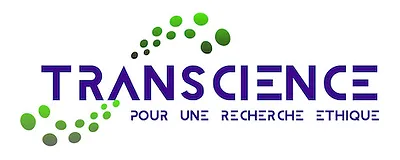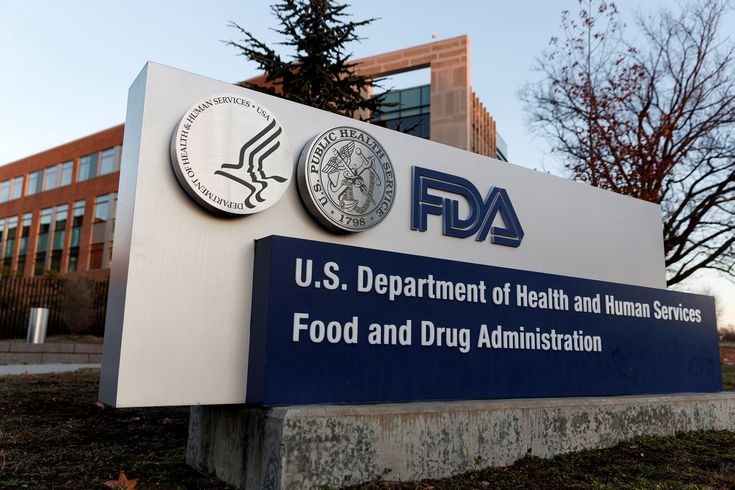Question for written answer to the Commission (E-000030/2026) on the delays and uncertainties in the REACH regulatory review process, by Jutta Paulus (Greens/EFA), 7 January 2026
Question for written answer to the Commission (E-003434/2025) on the coherence between the roadmap for phasing out animal testing, the revision of the pharmaceutical legislation and the ERA action on non-animal methods in biomedical research, by Sebastian Everding (The Left), Anja Hazekamp (The Left), September 5, 2025
Response from the European Commission on November 3, 2025 : click here
Question for written answer to the Commission (E-002468/2025) on the use of unprotected organisms in NAMs under REACH and the implications for animal testing policy, by Jutta Paulus (Greens/EFA), 18 June 2025
Response from the European Commission on August 27, 2025 : click here
Question for written answer to the Commission (E-001722/2025) on non-human primates used in experiments and the end of animal testing, by Niels Fuglsang (S&D), 30 April 2025
Response from the European Commission on July 30, 2025 : click here
Question for written answer to the Commission (E-001721/2025) on dogs used in experiments and the end of animal testing, by Niels Fuglsang (S&D), 30 April 2025
Response from the European Commission on July 30, 2025 : click here
Question for written answer to the Commission (E-001720/2025) on skin sensitization tests using guinea pigs, by Niels Fuglsang (S&D), 30 April 2025
Response from the European Commission on June 27, 2025 : click here
Question for written answer to the Commission (E-001392/2025) on the continued use of batch potency testing on animals despite the existence of other recognized non-animal methods, by Tilly Metz (Greens/EFA), 4 April 2025
Response from the European Commission on July 30, 2025 : click here
Question for written answer to the Commission (E-001391/2025) on antibody production methods, by Tilly Metz (Greens/EFA), 4 April 2025
Response from the European Commission on July 30, 2025 : click here
Question for written answer to the Commission (E-001354/2025) on the roadmap for phasing out animal testing, by Tilly Metz (Greens/EFA), 2 April 2025
Response from the European Commission on May 27, 2025 : click here
Question for written answer to the Commission (E-001196/2025) on EU funding for animal experiments, by Tilly Metz (Greens/EFA), 20 March 2025
Response from the European Commission on May 8, 2025 : click here
Question for written answer to the Commission (E-0002727/2024) on the ban on animal testing and the revision of the REACH regulation, by Anne-Sophie Frigout (PfE), Angéline Furet (PfE), Marie Dauchy (PfE), Marie-Luce Brasier-Clain (PfE), Pierre Pimpie (PfE), Séverine Werbrouck (PfE), Mélanie Disdier (PfE), December 3, 2024
Response from the European Commission on March 18, 2025 : click here
Question for written answer to the Commission (E-0002426/2024) on projects using animals that benefit from Horizon Europe funds carried out in non-EU countries, by Tilly Metz (Greens/EFA), 6 November 2024
Response from the European Commission on 17/01/2025 : click here
Question for written answer to the Commission (E-0001034/2024) on primates used in experiments and the phasing out of animal testing, by Niels Fuglsang (S&D), Tilly Metz (Greens/EFA), 8 April 2024
Response from the European Commission on 13/06/2024 : click here
Question for written answer to the Commission (E-000247/2023) on the assessment and future of the European Union reference laboratory for the promotion of alternative methods to experimentation (EURL ECVAM), by Annika Bruna (ID), Elzbieta Kruk (ECR), Marie Dauchy (ID), Aurelia Beigneux (ID), January 26, 2023
Response from the European Commission on 27/03/2023 : click here
Question for written answer to the Commission (E-000003/2023) on recognition of the right of conscientious objection to animal testing, by Annika Bruna (ID), Eric Minardi (ID), Emil Radev (PPE), Aurélia Beigneux (ID), Jean-Paul Garraud (ID), 4 January 2023
Response from the European Commission on 14/02/2023 : click here
Question for written answer to the Commission (E-000372/2023) on the inclusion of more animal welfare representatives on committees that monitor animal testing, by Annika Bruna (ID), Eric Minardi (ID), Ivan Vilibor Sincic (NI), Elzbieta Kruk (ECR), Aurelia Beigneux (ID), 7 February 2023
Response from the European Commission on 24/03/2023 : click here
Question for written answer to the Commission (E-001141/2022) to ban the supply of primates captured in the wild to laboratories, by Annika Bruna (ID), Maxette Pirbakas (NI), Ioannis Lagos (NI), 21 March 2022
Response from the European Commission on 29/04/2022 : click here
Question for written answer to the Commission (E-005345/2021) on banning tobacco experiments on animals, by Annika Bruna (ID), Aurélia Beigneux (ID), December 1, 2021
Response from the European Commission on 18/02/2022 : click here
Question for written answer to the Commission (E-004587/2021) on the long-awaited respect of the 3Rs principle in animal testing, by Annika Bruna (ID), Viktor Uspaskich (NI), Herve Juvin (ID), Virginie Joron (ID), Gilles Lebreton (ID), Aurélia Beigneux (ID), 11 October 2021
Response from the European Commission on 14/12/2021 : click here
Question for written answer to the Commission (E-003128/2021) on the resumption of trade in wild-caught long-tailed macaques from Mauritius, by Manuela Ripa (Greens/EFA), Günther Sidl (S&D), Marie Toussaint (Greens/EFA), Anja Hazekamp (The Left), Francisco Guerreiro (Greens/EFA), Martin Buschmann (NI), Eleonora Evi (Greens/EFA), 15 June 2021
Response from the European Commission on 10/08/2021 : click here
Question for oral answer to the Commission (O-000042/2021)
Subject: Plans and measures to accelerate the transition to animal-free innovation in research, regulatory testing and education
by Jytte Guteland (S&D), Sirpa Pietikäinen (PPE), Anja Hazekamp (The Left), Tilly Metz (Greens/EFA), Manuel Bompard (The Left), Eleonora Evi (Greens/EFA), Martin Buschmann (NI), Younous Omarjee (The Left), Sylwia Spurek (Greens/EFA), Francisco Guerreiro (Greens/EFA), Petras Auštrevičius (Renew), Nikolaj Villumsen (The Left), Thomas Waitz (Greens/EFA), Mick Wallace (The Left), Alexis Georgoulis (The Left), Clare Daly (The Left), Niels Fuglsang (S&D), Günther Sidl (S&D), Manuela Ripa (Greens/EFA), Pascal Durand (Renew), Pär Holmgren (Greens/EFA), Annika Bruna (ID), Caroline Roose (Greens/EFA), Rosa D’Amato (Greens/EFA), Aurélia Beigneux (ID), Heidi Hautala (Greens/EFA), Marie Toussaint (Greens/EFA), Veronika Vrecionová (ECR), Kira Marie Peter-Hansen (Greens/EFA), Michal Wiezik (EPP), Sarah Wiener (Greens/EFA), Tiziana Beghin (NI), Alice Kuhnke (Greens/EFA), Katalin Cseh (Renew), Ville Niinistö (Greens/EFA), Marina Kaljurand (S&D), June 9, 2021
“Since 1993, the Commission has been asserting its determination to actively reduce and replace the use of animals in science. Yet the number of animals used for scientific purposes is declining only very slowly. While Directive 2010/63/EU lays down basic rules for protection of animals used for scientific purposes, it does not constitute a strategy for reducing and replacing animal use.
In view of the Green Pact for Europe, the “Next Generation EU” stimulus package and the health and environmental challenges we face, as well as growing public concern about animal experimentation, it is vital that the EU speeds up the transition from the outdated animal-based model to modern, human-relevant, animal-free science in research, regulatory testing and teaching.
1. What sectoral plans does the Commission intend to implement to end the use of animals and to develop innovative models with human relevance, which are the future of the fight against human diseases?
2. What multidisciplinary and synergetic measures does the Commission envisage to abolish the use of animals in all policy areas?
3. Will the Commission put in place a comprehensive action plan with proposals and targets for phasing out the use of animals in research, regulatory testing and education in the European Union?”
Question for written answer to the Commission (E-003039/2021) concerning the import of long-tailed macaques from Mauritius, by Raphaël Glucksmann (S&D), 9 June 2021
Response from the European Commission on 10/08/2021 : click here
Question for written answer to the Commission (E-002780/2021) on the promotion of alternative methods to animal testing within the European Union Agencies, by Annika Bruna (ID), Joachim Kuhs (ID), Aurelia Beigneux (ID), Athanasios Konstantinou (NI), 26 May 2021
Response from the European Commission on 05/08/2021 : click here
Question for written answer to the Commission (E-002231/2021) to reduce animal experiments, by Annika Bruna (ID), 26 April 2021
Response from the European Commission on 06/07/2021 : click here
Question for written answer to the Commission (E-001729/2021) on the definitive end of animal testing for cosmetic products, by Aurelia Beigneux (ID), 29 March 2021
Response from the European Commission on 18/06/2021 : click here
Question for written answer to the Commission (E-000087/2021) on compliance with the ban on animal testing for cosmetic products, by Annika Bruna (ID), Aurelia Beigneux (ID), Gilbert Collard (ID), January 8, 2021
Response from the European Commission on 11/03/2021 : click here
Question for oral answer to the Commission (O-000084/2020) on concerted plans and actions for the transition to animal-free research in the European Unionby Tilly Metz (Greens/EFA), Sirpa Pietikäinen (EPP), Eleonora Evi (Greens/EFA), Francisco Guerreiro (Greens/EFA), Sylwia Spurek (Greens/EFA), Jytte Guteland (S&D), Martin Buschmann (NI), Younous Omarjee (GUE/NGL), Alexis Georgoulis (GUE/NGL), Anja Hazekamp (GUE/NGL), Caroline Roose (Greens/EFA), Clare Daly (GUE/NGL), Emil Radev (PPE), Günther Sidl (S&D), Heidi Hautala (Greens/EFA), Jiří Pospíšil (EPP), Kira Marie Peter-Hansen (Greens/EFA), Annika Bruna (ID), Manuel Bompard (GUE/NGL), Manuela Ripa (Greens/EFA), Margrete Auken (Greens/EFA), Marie Toussaint (Greens/EFA), Marisa Matias (GUE/NGL), Michal Wiezik (PPE), Mick Wallace (GUE/NGL), Niels Fuglsang (S&D), Nikolaj Villumsen (GUE/NGL), Pär Holmgren (Verts/ALE), Pascal Durand (Renew), Petras Auštrevičius (Renew), Rosa D’Amato (Verts/ALE), Sarah Wiener (Verts/ALE), Thomas Waitz (Verts/ALE), Tiziana Beghin (NI), Veronika Vrecionová (ECR), Ville Niinistö (Verts/ALE), December 18, 2020
“Since 1993, the Commission has been asserting its determination to reduce and replace the use of animals in scientific experimentation. Yet the latest statistics published by the Commission show only a slight decrease in the number of animals used for scientific purposes. However, this decrease is dwarfed by the 12 million increase in the number of animals bred for scientific research and then killed without ever having been used. Although Directive 2010/63/EU lays down basic rules for protection of animals used for scientific purposes, it does not provide any strategy for the reduction and replacement of these animals.
On the other hand, the US Environmental Protection Agency (EPA) has pledged to “drastically” reduce animal experimentation, in particular by abolishing any obligation to carry out experiments on mammals, and eliminating funding for such experiments by 2035. While the EU was at the forefront of the global movement for an animal-free scientific approach, there are now signs that it is beginning to lag behind several countries, which are planning to develop and follow roadmaps for phasing out the use of animals in scientific research through innovative non-animal technologies, which will revolutionize toxicity testing and biomedical research, and produce better results for human health and the environment.
Now, more than ever, the “Next Generation EU” relaunch instrument affirms the desire to encourage innovation and renew education. In light of this, and of the unprecedented health and environmental challenges facing the Union, it seems vital that the Commission reinforces its commitment to investing in innovative, human-applicable, non-animal science in all areas, including research, education and regulatory testing.
The European Union’s reference laboratory, through its work on alternative methods to animal experimentation, has shown how investment in innovative animal-free technologies can lead to the best study models for understanding the mechanisms of certain diseases and researching potential treatments.
The Sustainable Chemicals Strategy, launched as part of the Green Pact for Europe, sets ambitious targets for protecting human health and the environment from the harmful effects of chemicals. Non-animal testing approaches will be essential if the Commission’s ambitious targets for predictive toxicology testing are to be met.
How does the Commission intend to ensure that its initiatives in research, innovation and education are in line with the Commission’s and Member States’ commitments to accelerate the transition to an animal-free scientific approach, and ultimately to the complete replacement of animal use in research, testing and education?
How does the Commission intend to significantly reduce the use of animals under REACH, particularly in light of the new strategy for sustainability in chemicals?”
Question for written answer to the Commission (E-002719/2020) on the breeding of animals in excess for animal testing, by Eleonora Evi (NI), Francisco Guerreiro (Greens/EFA), David Cormand (Greens/EFA), Sirpa Pietikäinen (EPP), Petras Auštrevičius (Renew), Tilly Metz (Greens/EFA), Anja Hazekamp (GUE/NGL), Pascal Durand (Renew), 5 May 2020
Response from the European Commission on 9/07/2020 : click here
Question with request for written answer to the Commission (E-002535/2020) on regulatory testing in animal experimentation, by Anja Hazekamp, Francisco Guerreiro, Eleonora Evi, Pascal Durand, Petras Auštrevičius, Tilly Metz, Sirpa Pietikäinen, David Cormand, 27 April 2020
Response from the European Commission on 27/07/2020 : click here
Question of 24 April 2020 with request for written answer to the Commission (E-002505/2020) on trials conducted in relation to third countries, by Francisco Guerreiro (Greens/EFA), Eleonora Evi (NI), Anja Hazekamp (GUE/NGL), David Cormand (Greens/EFA), Pascal Durand (Renew), Sirpa Pietikäinen (EPP), Tilly Metz (Greens/EFA), Petras Auštrevičius (Renew), Sylwia Spurek (Greens/EFA), 24 April 2020
Response from the European Commission on 16/07/2020 : click here




